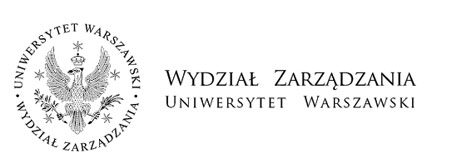The Laboratory represents a particular implementation of CARS statutory tasks in sectors of digital markets and data economy.
 dr Laura Zoboli
dr Laura Zoboli
Doctor of Law, Bocconi University. Assistant Professor, Department of European Economic Law, Faculty of Management, University of Warsaw. Laura teaches and researches in the fields of EU Competition Law and IP and, in particular, she deals with their role within the digital markets and the data economy.
E-mail:
More: https://www.linkedin.com/in/laura-zoboli-0267a86a
Members
Maciej Bernatt (Assistant Professor, University of Warsaw); Marta Cantero Gamito (Associate Professor, University of Tartu and Universidad Complutense de Madrid); Giuseppe Colangelo (Jean Monnet Professor of European Innovation Policy, University of Basilicata); Alexandre De Streel (Professor, University of Namur); Helen Eenmaa-Dimitrieva (JSD Yale Law School; Researcher, University of Tartu); Michèle Finck (Senior Research Fellow, Max Planck Institute for Innovation and Competition); Mateusz Grochowski (Senior Research Fellow, Max Planck Institute for Comparative and International Private Law); Jörg Hoffmann (Junior Research Fellow, Max Planck Institute for Innovation and Competition); Mariateresa Maggiolino (Associate Professor, Bocconi University); Iga Małobęcka-Szwast (Assistant Professor, University of Warsaw); Maria Lillà Montagnani (Associate Professor, Bocconi University); Anna Renata Pisarkiewicz (Research Associate, Florence School of Regulation, EUI); Giacomo Tagiuri (Max Weber Fellow, EUI); Bartosz Targanski (Assistant Professor, Warsaw School of Economics).
Mission
The institutions of the European Union have interpreted digital technologies and data as levers to re-launch European economic development and to strengthen the internal market. The digital single market is one of the EU priorities since 2015. More recently, several EU policies and actions have focused on the need to establish a flourishing European data economy. With the Digital Single Market Strategy and the European Data Economy initiative, the European Commission has made clear its intention to nurture the development of digital markets and a data-driven economy in the EU. Therefore, the EU legislator has been focused on tearing down regulatory barriers to the digital single market as well as intervening to address new challenges in consumer protection, privacy, copyright among other themes. Particularly lively debates have emerged around the need to adapt existing competition law doctrines and frameworks to digital markets. Furthermore, the sector-specific approach followed by the Commission to shape digital markets often impacts on the scope and on the mandate of EU competition law.
As for the EU data economy, a broad array of legislative initiatives has been adopted by the European Commission to remove the existing obstacles. However, this policy has not failed to raise concerns. For example, the data economy could harm the functioning of market mechanisms, because of the concentration of economic power in the hands of a few firms and because of the increasingly popular algorithmic manipulation of the commercial information available on digital markets.
Furthermore, in the last years, the European Union has gained the initiative inter alia in antitrust, data protection and copyright regulation. In order to gain and maintain access to the EU market, many external actors need or will need to comply with its rules – thus placing the EU in the role of “standard setter” also outside its borders. The famous cases against Google, Facebook and Amazon are emblematic. In the US, traditionally more suspicious of any strong market regulation, a debate has flared on retaking the regulatory initiative, or at least deploying strategies to keep up with the EU model.
In concrete terms, the effectiveness of the measures adopted by the EU toward digital markets and the data economy and the opportunity of stronger harmonization need to be continuously re-assessed.
Therefore, the laboratory aims to provide a forum for monitoring and assessing new legislative initiatives, case law and administrative decisions concerning digital markets and the data economy by drawing together a multidisciplinary group of experts working in competition law, consumer law, intellectual property, internal market law, and the governance of markets more generally. The laboratory aspires to become a stable network of researcher representing a point of reference in the field within the EU.
Planned activities
The laboratory will organize seminars and conferences. The first seminar will be open to everyone via a call for papers. It will aim at framing a topic to be discussed within the laboratory in the short term agenda.
To fill gaps caused by the rapid development of digital markets and the data economy, and to manage the concerns that these developments are fueling, the laboratory aims to develop research to the use of both academics and practitioners working on the governance of digital markets. For example, one of the issues of Yearbook of Antitrust and Regulatory Studies will be dedicated to digital markets and data in 2020.
The ambition of the laboratory – in the long run – is to develop a shared research project across the members and also to expand its membership to practitioners and policy-makers. This would put the laboratory in the condition of producing impact also on the policy debate.
Projects
Research project on business-to-business data sharing within the EU digital market financed by the Polish National Science Centre (Opus grant, 2019-2021).
Conferences
CARS seminar on Geo-blocking (Dr. Laura Zoboli, University of Warsaw, dr. Bartosz Targański, Warsaw School of Economics), 19 November 2018.
CARS guest lecture on Blockchain and Regulation (Dr. Michèle Finck, Max Planck Institute for Innovation and Competition), 3 June 2019.





